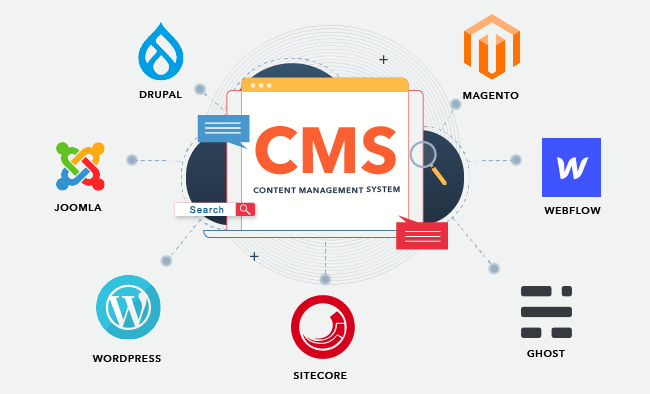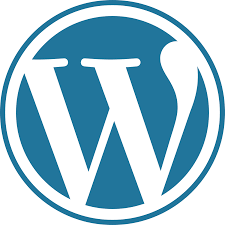Content management System (CMS)
is the process of creating, editing, publishing, and archiving digital content. A content management system (CMS) is a software application that helps users manage their digital content.
CMSs are used by a wide variety of organizations, including businesses, nonprofits, and educational institutions, to manage their websites, blogs, and other digital content.
How content management systems work
CMSs typically work by storing digital content in a database. This allows users to easily create, edit, and publish content without having to know how to code.
CMSs also provide a variety of features to help users manage their content, such as:
- User roles and permissions: CMSs allow users to create different user roles with different permissions. This allows users to control who can create, edit, and publish content.
- Workflows: CMSs allow users to create workflows for their content. This allows users to automate the publishing process and ensure that all content is reviewed and approved before it is published.
- Versioning: CMSs track changes to content and allow users to revert to previous versions of content if needed.
- SEO: CMSs provide features to help users optimize their content for search engines.

Benefits of using a content management system
There are a number of benefits to using a content management system, including:
- Ease of use: CMSs are easy to use, even for users with no coding experience.
- Flexibility: CMSs are flexible and can be used to create and manage a wide variety of digital content, such as websites, blogs, and online courses.
- Scalability: CMSs are scalable and can be used to manage websites and other digital content of all sizes.
- Security: CMSs typically offer a high level of security, which helps to protect digital content from unauthorized access.
Conclusion
Content management systems are powerful tools that can help organizations of all sizes manage their digital content. By using a CMS, organizations can save time and money, improve their efficiency, and create a better user experience for their customers and visitors.
Here are some examples of popular content management systems:
- WordPress

The best CMS for you will depend on your specific needs and requirements. Consider the following factors when choosing a CMS:
- Ease of use: How easy is the CMS to use?
- Features: What features does the CMS offer?
- Scalability: Can the CMS scale to meet your needs as your organization grows?
- Security: Does the CMS offer a high level of security?
- Cost: How much does the CMS cost?
Once you have considered these factors, you can start to narrow down your choices and choose the CMS that is right for you.


